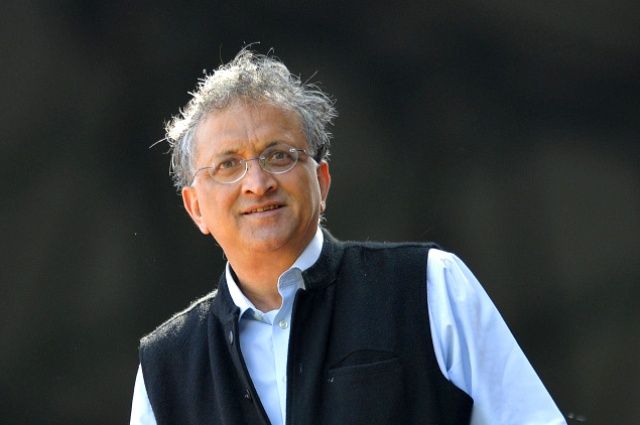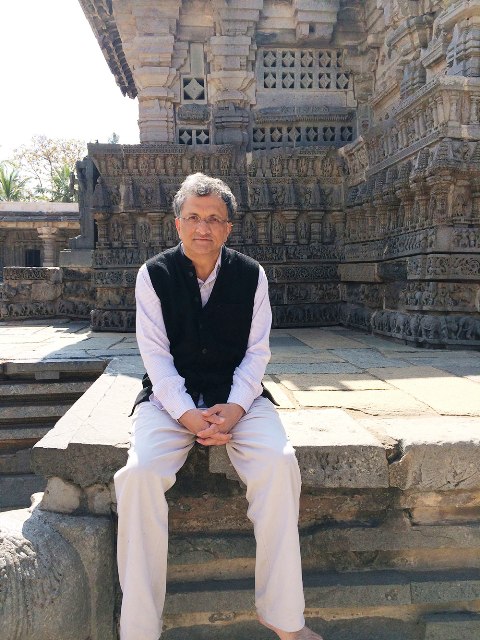Biography
Ramachandra Guha Age, Wife, Family, Biography & More

Ramachandra Guha Age, Wife, Family, Biography & More
| Bio | |
| Real Name | Ramachandra Guha |
| Nickname | Not Known |
| Profession | Historian |
| Awards/Recognition | • In 2001, awarded Leopold-Hidy Prize of the American Society for Environmental History for his essay “Prehistory of Community Forestry in India.” • In 2002, awarded the Daily Telegraph Cricket Society Book of the Year prize for “A Corner of a Foreign Field.” • In 2003, won the R. K. Narayan Prize at the Chennai Book Fair. • In May 2008, listed one of the top 100 public intellectuals in the world by the US magazine Foreign Policy. • In 2009, awarded Padma Bhushan by the Government of India. • In 2011, won Sahitya Akademi Award for India after Gandhi. • In 2015, won Fukuoka Asian Culture Prize. |
| Physical Stats & More | |
| Height (approx.) | in centimeters- 178 cm in meters- 1.78 m in Feet Inches- 5’ 10” |
| Weight (approx.) | in Kilograms- 68 kg in Pounds- 150 lbs |
| Eye Colour | Black |
| Hair Colour | Salt & Pepper |
| Personal Life | |
| Date of Birth | 29 April 1958 (Tuesday) |
| Age (as of 2024) | 66 Years |
| Birth Place | Dehra Dun, Uttar Pradesh (now in Uttarakhand) |
| Zodiac sign/Sun sign | Taurus |
| Nationality | Indian |
| Hometown | Bengaluru, India |
| School | The Doon School, Dehradun, Uttarakhand, India |
| College/University | St. Stephen’s College, University of Delhi Delhi School of Economics IIM Calcutta |
| Educational Qualifications | BA in Economics in 1977 from St. Stephens, University of Delhi Master’s from the Delhi School of Economics A fellowship program (equivalent to a PhD) on the social history of forestry in Uttarakhand from IIM Calcutta |
| Family | Father– Subramaniam Ramdas Guha (Indian Forest Official) Mother– Name Not Known (High-school teacher) Brother– Not Known Sister– Not Known |
| Religion | Hinduism |
| Hobbies | Reading, Writing, Traveling |
| Favorite Things | |
| Favorite Leader | Mahatma Gandhi |
| Favorite Sports | Cricket |
| Favorite Cricketer | Sachin Tendulkar |
| Favorite Food | Sticky rice with a curry of fresh Asian greens, Piping hot corn soup |
| Girls, Affairs and More | |
| Marital Status | Married |
| Affairs/Girlfriends | Not Known |
| Wife | Sujata Keshavan (graphic designer) |
| Children | 2 |
| Money Factor | |
| Salary | Not Known |
Some Lesser Known Facts About Ramachandra Guha
- Does Ramachandra Guha smoke:? Not Known
- Does Ramachandra Guha drink alcohol:? Not Known
- He was born to a Tamil family and brought up in Dehra Dun, Uttar Pradesh (Now Uttarkhand), India.
- His mother was a high-school teacher and his father was a director at the Forest Research Institute.
- Guha was an editor of The Doon School Weekly at the Doon School in Dehradun.
- From 1985 to 2000, he taught at various Universities in India, North America and Europe including the Yale University, The University of California, Berkely, Oslo University and Stanford University.
- In the mid-90s, he moved to Bangalore (now Bengaluru) and became a full-time writer.
- He also served as the visiting professor at the Indian Insitute of Science (IISc) Bengaluru.
- He is called a Serial Historian and has written extensively on various subjects like environment, cricket, post-Independence national history and tribes.
- His first book- The Unquiet Woods: Ecological Change and Peasant Resistance in the Himalaya, was published in 1989.
- His most famous book is India After Gandhi for which he also got the Sahitya Akademi Award.
- In an interview, he revealed that he became a non-vegetarian during his schools days at the Doon school in Dehra Dun. However, later he turned vegetarian.
- His book on cricket in India- A Corner of a Foreign Field: The Indian History of a British Sport, has also earned critical acclaims.
- On 30 January 2017, the Supreme Court of India formed a panel headed by Vinod Rai to run BCCI including Ramachandra Guha, Diana Edulji (Former Indian Cricketer) and Vikram Limaye (IDFC Managing Director), a few weeks after the BCCI’s president Anurag Thakur and secretary Ajay Shirke were removed by the Supreme Court because of their inability to implement the Justice Lodha Panel recommendations.






